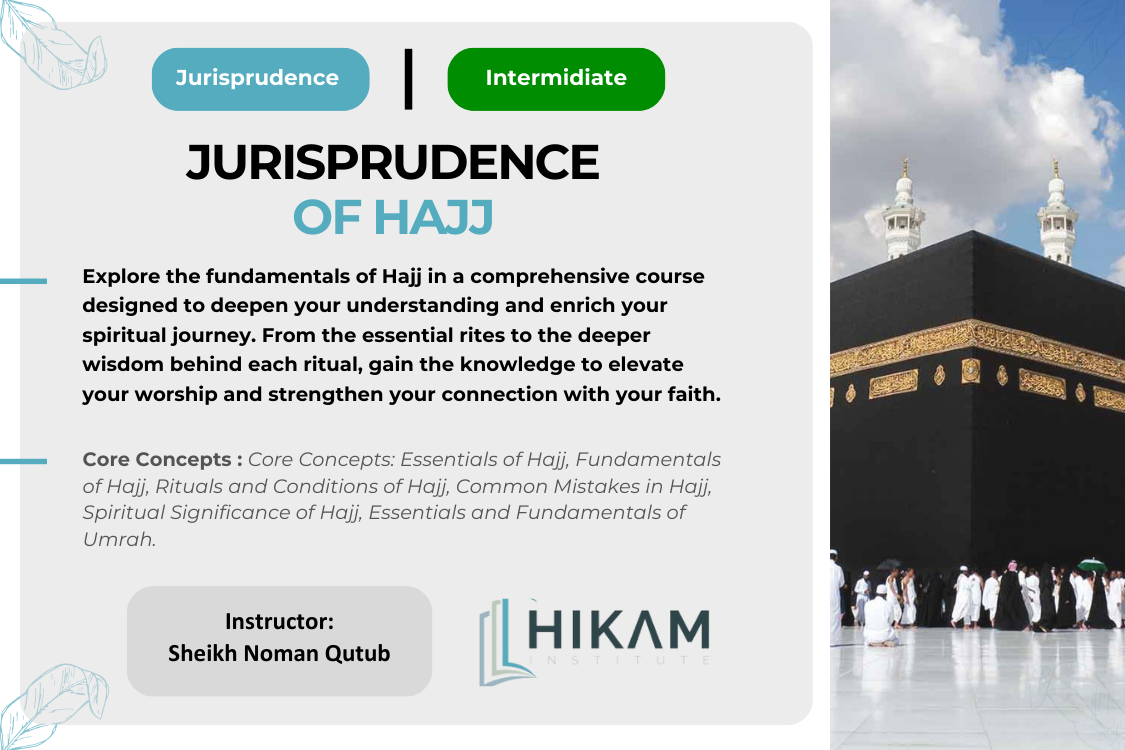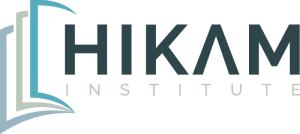Overview

All definitions are for Allah, the Most Knowledgeable, who created the human species in the best form and endowed them with the ability to acquire knowledge. Blessings and peace be upon Prophet Muhammad (peace be upon him), who was sent as a guide and mercy to all of humanity.
The Quran summarizes the purpose of our creation in Surah Adh-Dhariyat, verse 56:
“And I did not create the jinn and mankind except to worship Me.”
The Quran not only defines the purpose of our existence but also provides guidance on how to worship Allah correctly. It states:
“Those who follow the Messenger, the unlettered prophet, whom they find written in what they have of the Torah and the Gospel, who enjoins upon them what is right and forbids them what is wrong and makes lawful for them the good things and prohibits for them the evil and relieves them of their burden and the shackles which were upon them. So they who have believed in him, honored him, supported him, and followed the light which was sent down with him—it is those who will be the successful.”
(Quran 7:157)
In this verse, the conditions for worshiping Allah are outlined, including acquiring knowledge of the Creator and His Messenger and understanding the correct ways of worship. This is why Prophet Muhammad (peace be upon him) made it obligatory for every Muslim to seek essential religious knowledge. Anas bin Malik (may Allah be pleased with him) narrated that the Messenger of Allah (peace be upon him) said:
“Acquiring knowledge is obligatory upon every Muslim.” (Ibn Majah)
About This Course:
This course is designed for every Muslim who seeks a detailed understanding of Hajj and its rulings but may lack comprehensive knowledge of its finer details. Since no act of worship is accepted by Allah unless it fulfills two essential conditions—sincerity in intention and adherence to Islamic law—this course aims to provide clarity on both. Worship must be purely for Allah, and obedience should be in accordance with the teachings and practices of our beloved Prophet Muhammad (peace be upon him).
In this course, students will study Fiqh al-Hajj in detail based on the Quran and Sunnah. Some of the key topics covered include the virtues of Hajj, its obligations, types of Hajj, conditions and timings, the rituals of Hajj and Umrah, Ihram and its regulations, fidya and kaffarah, and various issues that may arise during Hajj and Umrah.
The primary goal of this course is to develop a strong understanding of Hajj-related jurisprudence so that students can apply their knowledge to real-life situations, navigate new issues as they arise, and fulfill this great act of worship in accordance with the correct Islamic guidelines.
Curriculum
Course accomplishments & objectives:
- Spreading the teachings of the Quran and Sunnah to every household.
- Providing necessary knowledge to the community regarding rituals such as Hajj and Umrah.
- Empowering individuals to perform acts of worship such as Hajj and Umrah.
- Fostering love for the religion and encouraging people to become practicing Muslims.
- Highlighting the significance of the Prophet’s life and understanding the divine nature of his teachings.
- Understanding the breadth and depth of Islamic jurisprudence.
- Learning to perform acts of worship correctly.
- Guiding family members, friends, and relatives towards a correct understanding and implementation of the religion.
- Understanding the rulings of Islamic jurisprudence on various issues.
- Understanding the reasoning behind these rulings.
- Understanding the correct rulings on contemporary issues.
Rules & Eligibility
Who is Eligible?
Any ordinary Muslim woman or man can participate in the course under the following conditions:
- They should have a digital device such as a smartphone or laptop with a good internet connection.
- They should be familiar with using the internet, know how to join platforms like Zoom or Google Meet and know how to turn on/off their microphone and video.
- They commit to attending two classes weekly, including making class notes, participating in classes, and taking exams.
- Enrollment in the course should be pursued with the sincere intention of completion, rather than for recreational or other purposes.
- They must have a basic understanding of everyday spoken Urdu.
Otherwise, they should have assistance to fulfill the above requirements.
Rules and Guidelines
General Rules:
- To be active during classes and maintain decorum.
- To be respectful of the sheikh and other members of the group.
- Refrain from personal quarrels, disputes, or comments during class.
- Interruptions should be avoided except for urgent matters; questions and answers will be addressed in the last 10 minutes of class.
- If you have difficulty understanding any of the points mentioned, please refrain from arguing. Instead, request a personal session with the Sheikh to clarify your doubts.
- Taking notes during class is mandatory.
Attendance guideline:
- Be present in class on time. In case of absence, submit a prior request for leave.
- If you have 8 consecutive absences in this course or are absent for 4 consecutive days, you will be expelled from the course.
- A delay exceeding 5 minutes after the class has commenced will be recorded, with three such delays counting as one absence.
Note: Attendance is considered a critical aspect of academic commitment at our institution.
Electronic device guideline:
- Microphones must remain muted during class unless activation is necessary for participation.
- Enter the classroom using the name with which you registered.
Food And Drink Guidelines:
Consumption of food and drinks is not permitted during class, except for water.
DO NOT JOIN. —– IF
- If you are busy and can’t attend regularly.
- If you are not serious about completing the course.
- If you are just coming for a trial.
- If you can’t attend weekly tests and complete assignments.
- If you can’t make notes.
- If you don’t have a proper internet connection and device.
Communication Protocols:
- The teacher should be addressed only as ‘Sheikh.’ Do not use any other titles such as Teacher, Brother, Janab, Sir, etc.
- At the end of every class 10 minutes will be allocated for questions and answers can be submitted either by typing in the chat box or by speaking.
- If the Q&A session exceeds 10 minutes, you may request permission from the instructor to leave the class.
- If you have any questions or concerns from the previous week, or if your question remains unanswered during class, you may send a message to the following number or ask the teacher directly with their permission.
- Questions should be brief and accurate since the time for the Q&A session is limited.
Coordinators:
Ka’ab ibn Talha – 0091 9650498479
Timings: All days of the week (10 am – 8 pm IST)
The Coordinator will make every effort to respond to you as soon as possible. However, depending on the nature of the question and time constraints, there may be a delay in the response.
Course Assessment:
- FINAL EXAM: 50 marks, (it may include multiple-choice questions or short-answer questions covering the entire course curriculum taught in class).
- VARIOUS ACTIVITIES: 50 marks, (attendance, participation, attention in class, completion of homework, and various assignments).
- To pass the course and obtain the certificate, it is mandatory to score a minimum of 60 out of 100.
Course duration:
Total duration: 3 months.
Total weeks: 12 weeks.
Total sessions: 36 sessions.
Days: Friday, Saturday, Sunday.
Time (IST):
Language of class: Urdu language.
Starting Date: 5th April 2025
Required texts and resources:
There is no textbook required as such, however, sometimes sheikh might ask to read specific articles.
Notes are very important during class; this is the only source for exam preparation.
Course Fees
While many of our courses are free, this particular course requires a fee. The institution covers expenses such as teachers’ salaries through ongoing charity, and this fee ensures the sustainability of this specific program. Your contribution helps us continue providing high-quality education.
Admission Fee (One-Time Payment): 699/- Indian Rupees
- Note: Scholarships are available for those in genuine financial need. If you require assistance, please reach out to the administrator for further guidance. (Covered by Hikam Institute’s Charitable Trust)
Kindly contact the administrator to facilitate the payment of the fee: +919650498479
Instructor

Sheikh Noman Qutub
Sheikh is the founder of Hikam Institute. He was born in New Delhi, India, and received his education from esteemed Islamic scholars in India. He obtained his primary education from the renowned institution "Jamiatu-Falah" in the northern part of India. Later, he embarked on a journey of learning as a student of Islamic jurisprudence at the prestigious "Imam Muhammad bin Saud Islamic University, Riyadh" where he also earned a degree in Islamic law. Sheikh has a particular interest in Islamic jurisprudence and Arabic language education, with over five years of teaching experience in these subjects. Furthermore, he has been involved in the establishment of educational institutions and schools across various parts of India. He provides consultancy services in curriculum development, educational material creation, Thesis writing, Dawah center management, and other educational initiatives. Sheikh is an orator along with expertise in addressing various topics of current affairs and nurturing the mental and spiritual growth of young individuals. He is a professional preacher and educator, conducting workshops and individual and family counseling sessions both online and offline for personal development.
Email address: Noman@mail.hikam.institute
Time Zone: Makkah Standard Time

